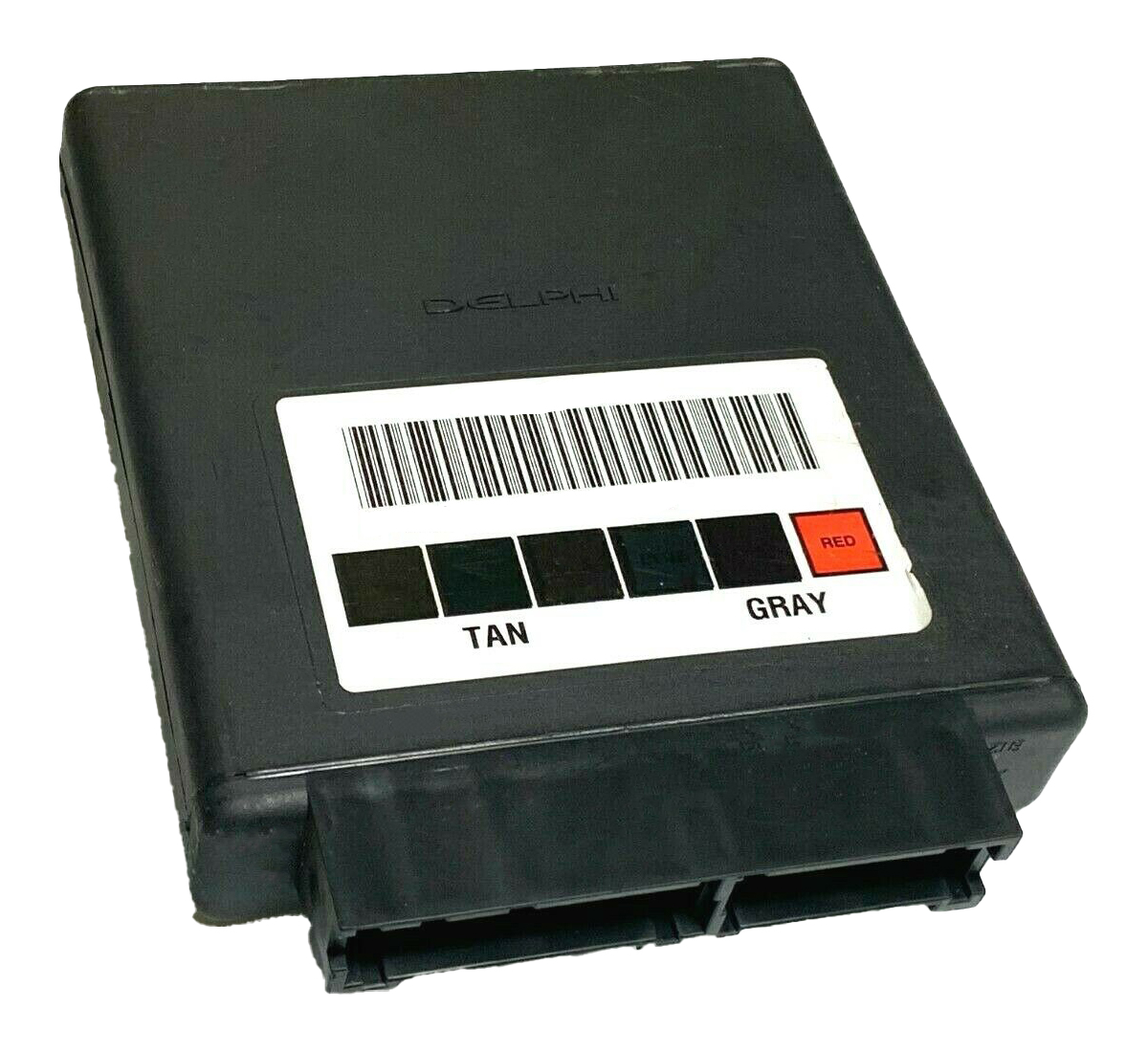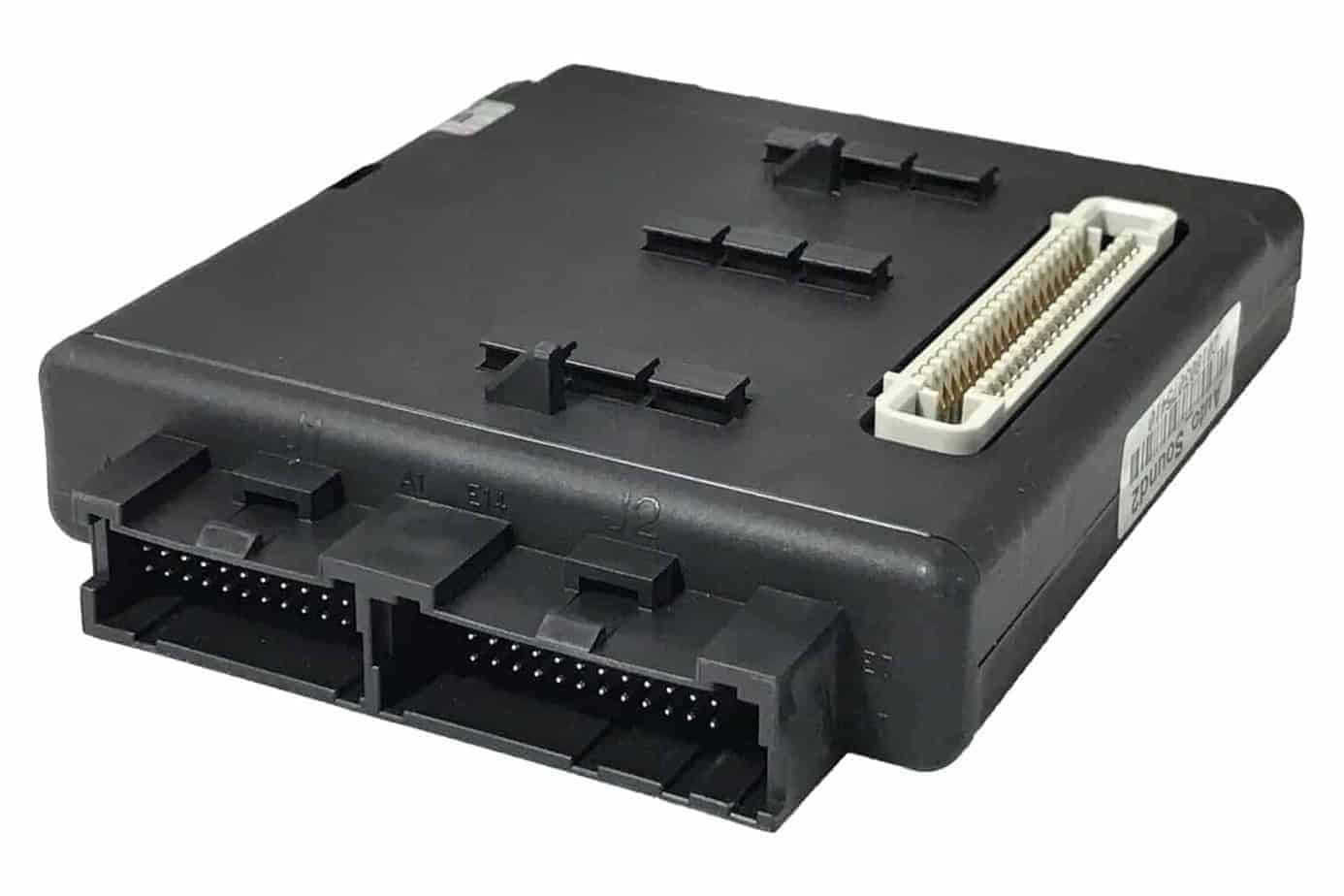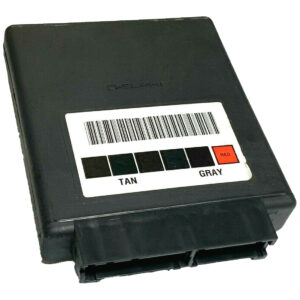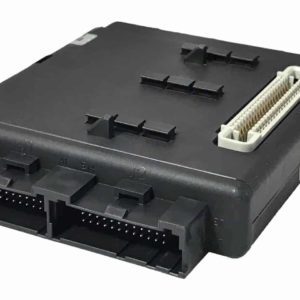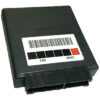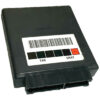Restore Your Vehicle’s Electrical System with a True Plug-and-Play Solution
Are you chasing down bizarre electrical problems in your Buick Rainier, GMC Envoy, or Chevy Trailblazer? Flickering lights, malfunctioning power windows, a dead instrument cluster, or a vehicle that refuses to start can all point to a failing Body Control Module (BCM). The BCM is the central hub for your vehicle’s body electronics, and when it fails, it can cause a cascade of frustrating issues. This isn’t just an inconvenience; it can affect safety systems like your brake lights. Instead of facing a costly trip to the dealership for a new module and programming, our professional cloning service offers a simple, effective, and permanent fix.
We take the data from your original BCM and transfer it directly to this fully tested replacement unit. This means the module arrives at your door ready for installation, with no need for expensive dealer-specific tools or additional programming. It’s the most straightforward way to get your truck back to 100% operational health. This service is designed for the 2005-2007 Rainier BCM and a wide range of other GM SUVs, restoring factory functionality without the typical hassle.
A Technician’s Notebook
I remember a 2006 Trailblazer that came into the shop with the strangest set of symptoms. The owner said the radio would turn on by itself, the driver’s side window wouldn’t go down, and the dome lights had a mind of their own. A basic scan showed a handful of U-codes, indicating a loss of communication between modules. My first suspect was the BCM, as it’s the traffic controller for all these components. After confirming power and ground were good at the module, we knew the BCM itself was the culprit. A cloned module like this one had the truck fixed in under an hour, saving the customer hundreds compared to the dealership quote.
Common Signs of a Failing BCM
If your vehicle is experiencing any of these issues, a faulty BCM is the likely cause. Don’t let these problems linger, as they can impact vehicle safety and operation.
- ✔ Erratic or non-functional power windows, door locks, and interior lights.
- ✔ Instrument cluster gauges behaving abnormally or not working at all.
- ✔ The security or anti-theft light staying on, preventing the engine from starting.
- ✔ Intermittent starting problems or a no-crank, no-start condition.
- ✔ Diagnostic trouble codes (DTCs) related to lost communication, such as U0140, U0155, or other U-series codes.
- ✔ Malfunctioning HVAC controls or radio.
- ✔ Brake lights staying on or not working correctly.
Your Straightforward Installation Guide
Installing your cloned BCM is a simple process that most DIYers can complete with basic hand tools. Here’s a general guide:
- Safety First: Disconnect the negative terminal from your vehicle’s battery and wait a few minutes to ensure all systems are powered down.
- Locate the BCM: On these GM SUVs, the BCM is typically part of the front fuse box assembly, located under the rear seat on the driver’s side.
- Remove the Old Module: Carefully unplug the electrical connectors attached to the BCM. They have locking tabs that need to be depressed. Once disconnected, unclip or unbolt the module from its mounting location.
- Install the New BCM: Seat the replacement module into the mounting bracket and securely plug in all the electrical connectors. You should hear a click as they lock into place.
- Reconnect and Test: Reconnect the negative battery terminal. Turn the key to the ‘On’ position and test all functions—windows, locks, lights, gauges, and radio—to confirm the repair.
Important Post-Installation Note: In some cases, additional steps may be needed. If your airbag light is on, a professional scan tool is required for the ‘Setup SDM Primary Key in BCM’ procedure. Similarly, a ‘Brake Pedal Position Relearn’ might be necessary. Always refer to a service manual for your specific vehicle if you are unsure.
Will This Fit My Vehicle?
This BCM is a direct-fit replacement for the following vehicles, matching part numbers 25802312, 8258023120, 15135466, and 15787809. Please verify your part number and vehicle options before ordering.
- ✔ 2005-2007 Buick Rainier (w/o security system)
- ✔ 2005-2009 Chevrolet Trailblazer (w/o security system)
- ✔ 2005-2006 Chevrolet Trailblazer EXT (w/o security system)
- ✔ 2005-2009 GMC Envoy (w/o security system)
- ✔ 2005-2006 GMC Envoy XL (w/o security system)
- ✔ 2005-2008 Isuzu Ascender (w/o security system on 05-07)
- ✔ 2006-2009 Saab 9-7X
Frequently Asked Questions
Frequently Asked Questions
How does the cloning service work?
After you place your order, you’ll ship your original BCM to us. We extract the vehicle-specific data and flash it onto the replacement module. This makes the new part a perfect electronic match for your vehicle, eliminating the need for any further programming.
Do I need to send you my VIN?
No, for this cloning service, we only need your original module. The VIN and all other necessary data are contained within it, which we transfer directly to the replacement unit.
Is this a simple plug-and-play installation?
Yes, for over 95% of installations. Because we clone your original data, the module is ready to be installed and used immediately. In rare cases, a relearn procedure for the airbag or brake pedal position sensor may be required, which needs a professional scan tool.
What happens to my old BCM?
Your original module is always returned to you along with the programmed replacement unit. We do not keep your old part, so there is no core charge or fee.
Will this fix my no-start problem?
If the no-start issue is caused by the BCM (often related to the vehicle’s anti-theft system), then this cloned module is the correct solution. It carries over your key information, allowing the vehicle to recognize the module and start properly.
How can I be sure this is the right part for my 2005-2007 Rainier BCM?
The best way to ensure compatibility is to match the part number from your original BCM to one of the numbers listed: 25802312, 8258023120, 15135466, or 15787809. Also, check the fitment list to confirm your make, model, and year.
